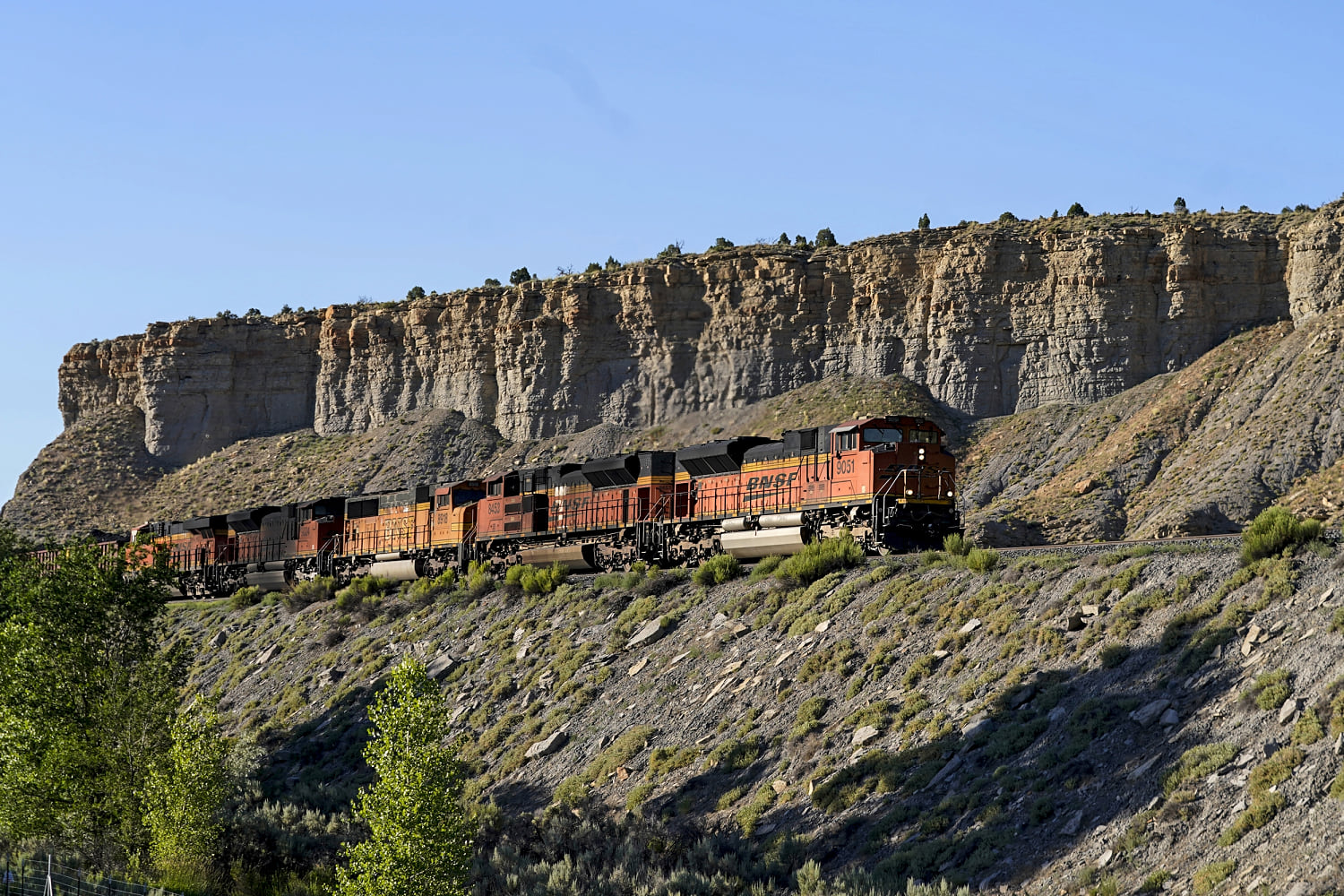Supreme Court appears likely to curb environmental law after arguments

The Supreme Court appears likely to weaken one of the nation’s bedrock environmental laws, after justices heard a key case on Tuesday.
During oral arguments, several of the court’s conservative justices signaled that they could support at least some limits on the scope of which environmental impacts need to be considered in government decision-making.
Justice Brett Kavanaugh argued that courts, which have struck down some environmental reviews as insufficient, have taken an “overly aggressive” role and incentivized agencies to take on sprawling environmental reviews.
The outcome of the case could have major implications: Limiting such consideration could impact a range of decisions including whether to approve oil and gas drilling, mining projects, pipelines, logging, highways and more.
The National Environmental Policy Act (NEPA), requires consideration of environmental impacts before these projects are approved — and the results of that evaluation could lead to mandated mitigation of environmental harms. At issue in the case is whether and when upstream and downstream environmental impacts should be considered as part of these environmental reviews.
The court’s conservative majority appeared to lean toward a lawyer representing a railway company and Utah counties, who argued that upstream and downstream effects should not be considered when they are “remote” in time and space.
Justice Amy Coney Barrett raised practical concerns about the government’s future ability to evaluate downstream environmental impacts in light of a 2023 law that limited such reviews to 150 pages.
“It’s going to be impossible for agencies to consider as many downstream and upstream effects just because of the procedural constraints,” she said.
However, liberal Justice Sonia Sotomayor said the arguments in favor of curtailing the environmental law, presented by lawyer Paul Clement, “doesn’t make much sense in the statutory scheme.”
“Most environmental effects…are going to be sometimes remote in time and geography,” she said.
The particulars of the case concern a proposed Utah railway that would ship oil. The D.C Circuit Court of Appeals said that the U.S. Surface Transportation Board did not adequately review that railway’s environmental impact because it did not fully consider the effects of increased oil production and refining of that oil, which would occur as a result.
The company behind the railway and a group of Utah counties appealed that decision to the Supreme Court, arguing that those indirect impacts are beyond the scope of the federal reviews.
Clement argued in favor of a two-part test to determine if environmental effects should be considered. Under his test, an impact should not be considered if it is remote in time and space and under the jurisdiction of another agency.
He argued that in the particular case, the effects of refining the oil belong to local environmental agencies, and should be left up to them, rather than the federal transportation board.
On the other hand, a lawyer representing a Colorado county and environmental advocacy groups who argue that the transportation board did not adequately consider the railroad’s potential impacts, argued that any effects that are “reasonably forseeable” should be considered.
The lawyer, William Jay, said the impacts of oil refining and production are reasonably foreseeable because the purpose of the railroad’s construction is to transport that oil, and that therefore the impacts should be considered.
The U.S. government also participated in the case, with Deputy Solicitor General Edwin Kneedler largely siding with the railway’s supporters, though Kneedler argued for more of a case-by-case approach as opposed to Clement who wanted the court to lay down a definitive rule.
Justice Neil Gorsuch rescued himself from the case after an oil company to which he has ties filed a brief explaining how it would be impacted by the case’s outcome.
Topics
-

Supreme Court Poised to Curb Scope of Environmental Reviews
Several justices indicated that a federal agency had complied with a federal law by issuing a 3,600-page report on the impact of a proposed railway in Utah.The New York Times - 1d -

Supreme Court weighs environmental dispute over Utah oil railway
The Supreme Court justices will weigh the fate of an 88-mile railroad project that would transport crude oil in Utah as they consider a dispute over whether federal officials conducted a stringent ...NBC News - 1d -

Supreme Court to hear case Tuesday that could restrict bedrock environmental law
The Supreme Court will hear arguments Tuesday in a case that could reduce the scope of one of the nation’s bedrock environmental laws. The case deals with the National Environmental Policy Act ...The Hill - 2d -

Supreme Court Appears Inclined to Uphold Tennessee Law on Transgender Care
Assessing the court’s ultimate direction was complicated by the silence of one justice in the conservative majority, Neil M. Gorsuch, the author of a key case on employment discrimination. The ...The New York Times - 5d -

Gorsuch recuses himself from environmental case before Supreme Court
Supreme Court Justice Neil Gorsuch recused himself on Wednesday from an environment case that’s slated to come before the court next week. Gorsuch announced his recusal in a one-paragraph letter ...The Hill - 6d -
Supreme Court hears arguments over Tennessee law banning transition care for minors
Demonstrators rally as justices consider a Tennessee law prohibiting gender-affirming medical care for transgender minors. The outcome could have far-reaching implications for similar laws nationwide.CBS News - 6d -

Supreme Court Latest: Majority of justices appear likely to uphold state ban on transgender care
The Supreme Court has heard arguments in just its second major transgender rights case, a challenge to a Tennessee law that bans gender-affirming care for minorsABC News - Dec. 4 -
Supreme Court arguments about Tennessee ban on gender-affirming care for kids
The Supreme Court heard arguments over gender-affirming care for minors experiencing gender dysphoria for a landmark case that could impact many Americans. CBS News' Jan Crawford reports.CBS News - Dec. 4 -
Supreme Court to hear arguments over gender-affirming care for minors
The Supreme Court on Wednesday will hear arguments in a landmark case over gender-affirming care for minors. The case involves a Tennessee law that bans puberty blockers and hormone treatments for ...CBS News - Dec. 4
More from The Hill
-

Trump picks businessman Leandro Rizzuto Jr. to be ambassador to the Organization of American States
The Hill - 22m -

Jan. 6 rioter says retired congressman invited him to Trump's inauguration
The Hill - 54m -

Trump taps Kari Lake for director of Voice of America
The Hill - 1h -

Rep. Glenn Ivey says replacing Wray is a 'mistake'
The Hill - 2h -

More than half of voters 'hopeful' going into Trump's 2nd term: Poll
The Hill - 3h